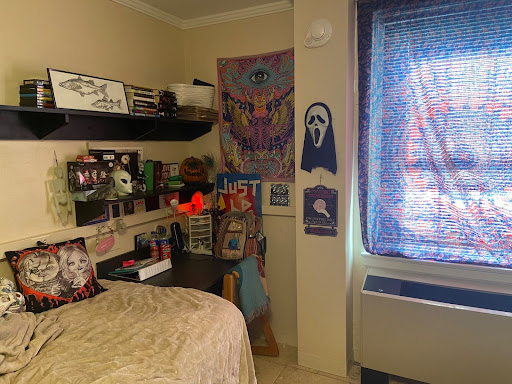Hundreds of students flocked to Harvard University for over 50 speakers, dozens of conversations and one life-changing weekend. Together, students from schools all over the country organized the first Open Hillel conference.
“There are only three Open Hillels in the country,” said Brandeis graduate Lex Rofes ’13. “It started toward the end of 2012.”
The Open Hillel movement began at Harvard and spread to Swarthmore, Vassar and Wesleyan. After Harvard, Hillel was unable to collaborate with other campus organizations due to national Hillel policy, which bans cooperation with organizations that support Boycott, Divestment and Sanctions, or deny the right of Israel to exist.
“Because of Hillel International’s guidelines for cooperation, we could never do anything with Guilford’s Hillel,” said junior Students for Justice in Palestine President Walid Mosarsaa.
Because of Hillel International’s pro-Israel stance, some students feel like their views aren’t welcome.
“Hillel is supposed to be an organization centered on Jewish life,” said Mosarsaa. “Not everyone believes in a two-state solution. Not everyone believes in a one-state solution.”
Campuses that have opened their Hillels have engaged students of all different political beliefs regarding Israel and Palestine.
“Let’s think about where our students are and how we can support them in thinking and growing and going deeper and offering them challenges to help them get a better grasp of where they are,” said Swarthmore junior Joshua Wolfsun at the conference.
Students from campuses far and wide came to Harvard on October 11th to learn about the growing movement, including students from Guilford’s Students for Justice in Palestine and Hillel.
“This was a very comfortable space for everyone,” said sophomore and Hillel President Leah Whetten-Goldstein. “It’s all inclusive.”
Even though conference attendees learned many different views about Israel and Palestine, the opportunity to listen to other voices is something that students would not have been able to do through Hillel.
“The panels wouldn’t have been able to exist at my Hillel,” said Rofes. “They included voices that would have been barred. I’m not a Jewish Voice for Peace supporter. I don’t support all aspects of BDS, but I gained a lot from listening to that perspective.”
Rabbis, authors, Jewish organizations, professor, and more spoke out about the conflict in the Middle East. Speakers from all sides were invited, although right-wing groups declined the invitation.
“You’re the ones being left out of the conversation now,” said Mosarsaa. “They’re fearful of their beliefs being shattered, which is not what this conference is about. It’s about everyone’s beliefs being respected.”
Regardless, panels covered a wide range of opinions.
“Just because someone is more on the left side doesn’t mean you agree,” said Whetten-Goldstein. “There was a whole range of opinions.”





